The nation’s Baby Boomers, those born between the years 1946-1964, are a vital part of Utah’s economic success. This generation has been a strong factor in labor markets and their impending retirement could be significant. The U.S. Department of Labor estimated the majority of the working baby boomer generation would retire between the years 2016 – 2025, and equate to approximately 16%-25%+ of nearly every employer’s workforce.
However, due to Utah’s relatively young population comparatively, the impact of baby boom retirements will not have the same impact in Utah as it will have in the rest of the nation, according to a new economic analysis provided by the Utah Department of Workforce Service (DWS). Workers over the age of 55 in Utah only represents 16.6% of the state’s labor force. Utah has a smaller share of workers over 55 than the rest of the United States, which comprises 23% of the nation’s workforce.
Kristie Wilder, a demographer in the US Census Bureau’s Population Division recently said, “As the nation’s median age creeps closer to 40, you can really see how the aging of Baby Boomers … is impacting the median age. While natural change nationally has been positive, as there have been more births than deaths, birth rates have gradually declined over the past two decades. Without a rapidly growing young population, the U.S. median age will likely continue its slow but steady rise.”
A Baby Boomer departure will impact employers in the industries that employ them in different ways. The Utah DWS reports industries with a higher concentration of Baby Boomers will have to contend with a brain drain when their most knowledgeable employees leave. While these retirements won’t have the same effect throughout all industries, retirements will provide challenges for employers of highly skilled positions, and opportunities for younger workers. Companies who initiated succession planning for upper level and highly skilled positions in years past will find the transition easier to navigate.
Utah has a number of advantages that make it a great place for businesses to locate or expand, attracting talent from a growing local talent pool. The state’s younger, skilled and educated workforce is a major advantage and asset that can help businesses succeed and avoid substantial impacts from upcoming Baby Boomer departures.
Utah has a higher than average high school graduation rate and a higher than average percentage of adults with a bachelor’s degree. This means a business can find a pool of skilled workers ready to hit the ground running.
Utah has a talent-ready workforce and is committed to providing workers with needed skills to succeed in today’s economy. The state has a number of programs to help workers develop skills including apprenticeships, workforce training programs, and online learning opportunities.

